#Today in Irish History
Explore tagged Tumblr posts
Text
#OTD in Irish History | 1 May (Bealtaine):
Beltane, Lá Bealtaine, the first day of Summer in modern Ireland was celebrated by the Celts, and is now also celebrated by Neopagans and Wiccans. 1169 – A small party of Normans arrive on the southern coast of Co Wexford and established a bridgehead for further invasions. 1171 – Diarmaid MacMurrough, king of Leinster, died in Ferns, Co Wexford. Strongbow was his (disputed) successor…
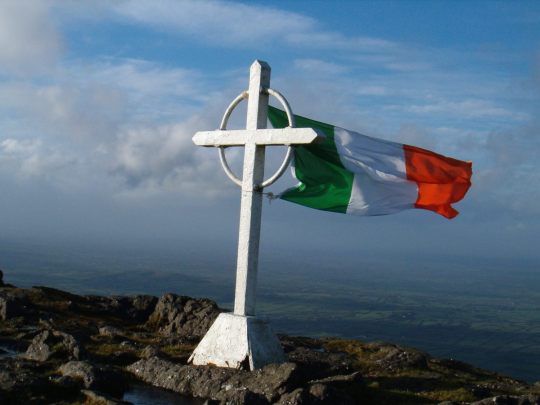
View On WordPress
#irelandinspires#irishhistory#OTD#1 May#1916 Easter Rising#Beltane#Galtymore Mountain#Galtymore Summit#History#History of Ireland#Ireland#Irish Civil War#Irish History#Irish War of Independence#Lá Bealtaine#Limerick#Tipperary#Today in Irish History
22 notes
·
View notes
Text
Henry grattan and henry flood duelling repeatedly and having to be ARRESTED to stop them duelling at one point is unspeakably funny btw can you imagine if these days the taoiseach and the second most senior member of their own political party were just constantly trying to kill each other with guns in public over random interpersonal disagreement
#turning on the news and it's like well the dáil was closed AGAIN today as the politicians have all been imprisoned for going about the#streets of dublin trying to shoot each other in the head AGAIN and everyone just goes damn 😔🙏#18th century#irish history#jory.txt
21 notes
·
View notes
Text
HEHE
#personal#the english chronicles#prof mentioned today that his main area of stidy is irish lit so i asked him after class if he has any recommendations bc ive been wanting#to learn more abt the history and culture connect better to my heritage etc and he told me actually he has been trying to get rid of some of#his enormous book collection since he’s retiring so he will plan on bringing some stuff to me next week 👀 and also dropped a decent amount#of names/titles and directed me to some book nook in one of the buildings that apparently he dropped some irish lit at recently including#smth on celtic mythological figures so. i am excited!!
2 notes
·
View notes
Text

Read the remaining facts, plus myths, quotes, faqs and an epic quiz at: 50 Facts About the Emerald Isle: Unveiling the Magic of Ireland
#facts#fun facts#random facts#interesting facts#today i learned#ireland#northern ireland#irish mythology#irish#irish history
2 notes
·
View notes
Photo
I mean, to be fair, alcoholism is a real problem in this country. It's just that it's an issue caused by the generational trauma of oppression, exploitation, and brutality.
When the only escape you have from the deprivation and general misery of your life is drink, then you're going to drink. And those coping methods get passed down genetically and culturally.
It's only been 100 years since we became a free country (or more accurately, a country divided into a free state and a smaller British colony), that shit takes time to heal.
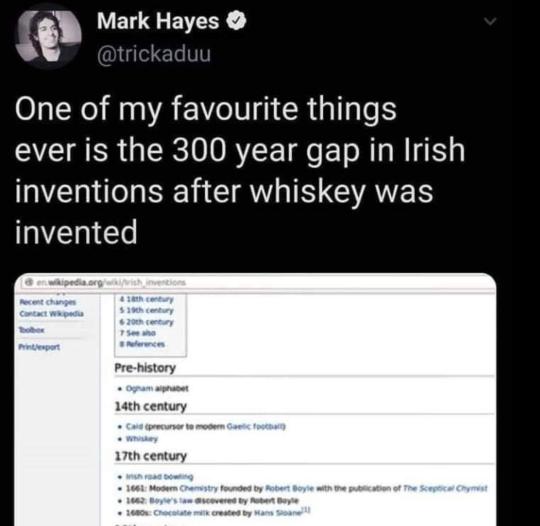
#irish things#generational trauma#colonialism#fuck the british#(by which i mean the british state not every individual british person alive today)#irish history#anti irish propaganda#cw alcoholism#alcoholism
244K notes
·
View notes
Text
Wrong #905
Guy in a bar on ray shift tried to hit on him, and rather than turn him down or dump a drink onto his head , Angra locked this man into a conversation about some game he’s been playing for a solid 20 minutes
#whathasangramainyudonewrong#angra mainyu#angry mango#fgo#fate grand order#I scared off some military dude in my dms today by telling him about the university project I was working on lmao#idk what you expected dude but you’re getting the rundown on some modern Irish history
7 notes
·
View notes
Text
"Did they beat the drum slowly, did they play the fife lowly, did they sound the death march as they lowered you down? Did the band play The Last Post in chorus, and did the pipes play the Flowers of the Forest?"
#willie mcbride#green fields of france#irish music#irish song#irish history#break my heart again today
1 note
·
View note
Text
youtube
this song makes me emotional every time
#the wolfe tones played it at a festival today and the crowd was amazing#It's based on a true story#Irish history#Irish stuff#wolfe tones#grace#Youtube#the dubliners
0 notes
Text
#OTD in Irish History | 17 March:
In the Liturgical calendar, today is the feast day of St Patrick, Ireland’s patron saint. It is a public holiday in Ireland, Montserrat and the Canadian province of Newfoundland and Labrador and widely celebrated across the world. 1762 – St Patrick’s Day is celebrated in New York City for the first time at the Crown and Thistle Tavern. 1776 – General George Washington used the password ‘St…
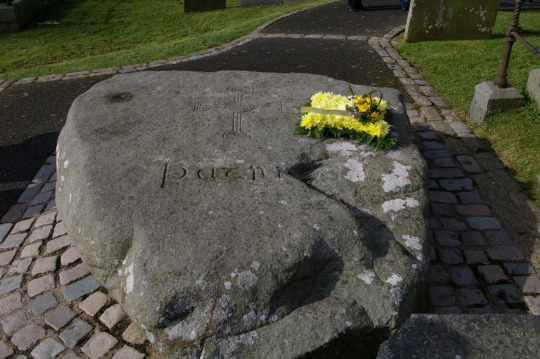
View On WordPress
#irelandinspires#irishhistory#OTD#17 March#Co. Down#Down Cathedral#Downpatrick#History#History of Ireland#Ireland#Irish Civil War#Irish History#Irish War of Independence#St Patrick#Today in Irish History
21 notes
·
View notes
Text
Sooo lucky for all of us that henry joy junior died before it was possible for him to start some sort of awful little podcast
#just imagine how much worse northern ireland could be today if henry joy jnr and rev william bruce could have had a podcast together...#this doesn't deserve an irish history tag#jory.txt
12 notes
·
View notes
Text
Happy 12th July 2024!

And here's to King William of glorious fame And the Protestant Boys who rejoice in his name And here's to the Lodges of Orange and Blue For they are the boys that are loyal and true NO SURRENDER! Happy Orange Day! On this date, July 12, in 1690, Protestant William of Orange, a Dutchman, defeated Catholic King James II at the Battle of the Boyne in Ireland. William became King William III of England, Scotland and Ireland, nicknamed as 'King Billy, ensuring that the British monarch would always be a Protestant.
#army#belfast#castle#causeway#city#day#giants#hall#history#ira#ireland#irish#language#loyalism#northern#patricks#republican#scots#sea#st#troubles#ulster#unionism#today on tumblr#northern ireland#Belfast city
1 note
·
View note
Text
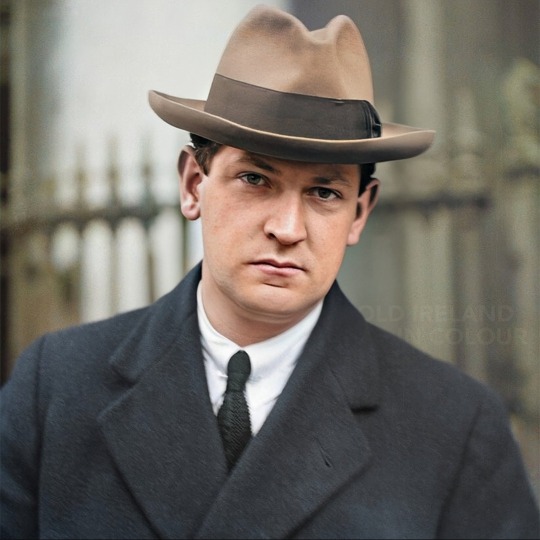
My husband fr
1 note
·
View note
Text
10 Fascinating Facts About Black Irish History

When people think of Irish history, they often imagine fair-skinned Celts with red hair. But Ireland has a long and rich history of Black presence, dating back centuries. From African merchants in medieval Ireland to Black Irish revolutionaries, here are ten key facts that highlight the deep and often overlooked connections between Black history and Ireland.
1. Black People Have Been in Ireland Since at Least the 3rd Century
Historical records suggest that people of African descent were present in Ireland as early as the Roman era. The Romans never invaded Ireland, but trade and migration brought people from North Africa and the Mediterranean to Irish shores.
2. The First Known Black Irishman Was a 9th-Century Scholar
One of the earliest recorded Black individuals in Ireland was Firmanus, a scholar who lived in the 9th century. He was described as “a man of Africa” who studied and taught in an Irish monastery. This suggests that Ireland had connections with the wider world far earlier than many assume.
3. Irish Pirates and African Connections
During the 17th century, Irish and African histories intertwined through piracy. Irish pirates and privateers frequently raided North African coasts, capturing people to sell into slavery, while some Irish were also taken by Barbary pirates and enslaved in North Africa.
4. Olaudah Equiano, a Former Slave, Was a Prominent Abolitionist in Ireland
Olaudah Equiano, one of the most famous formerly enslaved Africans and an early abolitionist, visited Ireland in the 1790s. His autobiography, The Interesting Narrative of the Life of Olaudah Equiano, was widely read in Ireland and helped build support for the abolitionist movement.
5. Ireland Had a Role in the Transatlantic Slave Trade
Although Ireland never had large-scale slavery like the Caribbean or the U.S., Irish merchants and settlers were involved in the transatlantic slave trade. Cities like Cork and Dublin profited from goods produced by enslaved Africans, and some Irish individuals owned plantations in the Caribbean and America.
6. Frederick Douglass Found Refuge in Ireland
Frederick Douglass, the famous African American abolitionist, visited Ireland in 1845 to escape the dangers of being recaptured in the U.S. He was deeply moved by the poverty he witnessed during the Irish Famine and found an ally in Irish leader Daniel O’Connell, who was a vocal opponent of slavery.
7. The Black Irish of Montserrat Are Descendants of Irish and African Slaves
The Caribbean island of Montserrat has a unique population of Black individuals who proudly identify as “Black Irish.” This stems from the 17th century, when Irish indentured servants and African slaves were forced to work on plantations together. Montserrat even celebrates St. Patrick’s Day as a nod to its Irish heritage.
8. Phil Lynott, the Black Irish Rock Legend
One of Ireland’s most famous Black figures is Phil Lynott, the frontman of the legendary rock band Thin Lizzy (“The Boys Are Back in Town”). Born in 1949 to an Irish mother and a Guyanese father, Lynott helped shape rock music and is celebrated as an Irish music icon.
9. Emma Dabiri is Leading Conversations on Black Irish Identity
Irish-Nigerian author and academic Emma Dabiri has been at the forefront of discussing Black identity in Ireland. Her books, including Don’t Touch My Hair, explore race, culture, and the often-overlooked history of Black people in Ireland.
10. Ireland Is Becoming More Diverse Than Ever
Today, Ireland is home to a growing Black community, with many people of African descent contributing to the country’s cultural, political, and artistic landscape. The 2022 Irish Census recorded over 70,000 Black Irish residents, showing that Black history in Ireland is far from over—it’s still being written.
Black Irish history is rich, complex, and deeply interwoven with global movements of people, power, and culture. Recognizing this history helps break stereotypes and highlights Ireland’s long-standing connections to Africa and the African diaspora.
Did any of these facts surprise you?
#black Irish#ambitious women#beautiful women#beauty#glow society#the glow society#fit beauty#health#self love#self improvement#self care#irish language#irish#irish mythology#irish music#notre dame fighting irish#irish history#irish girl#irish politics#irish art#irish literature#black forest#black history#black history month#black woman#black people#black man#black women#black beauty#black bikini
417 notes
·
View notes
Text
Hozier's mention of the word "hushpukena" (a Choctaw word) in the song Butchered Tongue was, of course, not a random decision. In a song about the pain of being disconnected from your ancestral language and culture as a result of colonization and oppression from outside forces- which is something that both Irish and Native American people have experienced to varying degrees. Not only do Irish and Indigenous people have this shared history of colonization at the hands of the British, but Irish and Indigenous communities have a long history of support for one another.
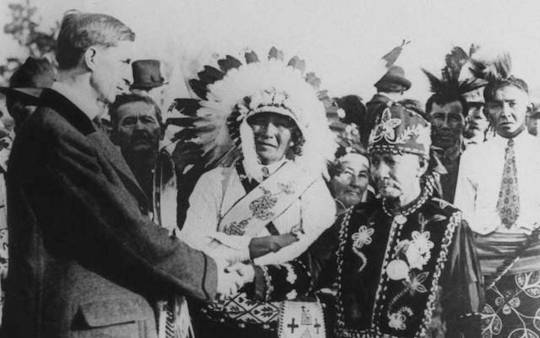
The usage of "hushpukena" is even more specific and important because it calls back to the mutually positive relationship between Irish and Choctaw people specifically. During the Great Hunger in Ireland, the Choctaw Nation donated $170, which is more than $5,000 in today’s money, to aid the Irish. Out of all American aid given to Ireland during the famine, the donation from the Choctaw Nation was the largest donation given.

In 1990, leaders from the Choctaw Nation visited County Mayo in Ireland to participate in the first annual Famine Walk. In 1992, Irish people visited the Choctaw Nation and participated in a trek to commemorate the Trail of Tears. Also in 1992, a plaque commemorating the Choctaw's aid was installed in the house of the mayor of Dublin. In 1995, the Irish President Mary Robinson visited the tribal headquarters of the Choctaw Nation to thank the Choctaw people for their aid. In 2017, a sculpture named "Kindred Spirits" was built in Cork, Ireland to commemorate the Choctaw's aid and to continue friendship between the two communities. In 2018, the Taoiseach (prime minister) of Ireland visited Choctaw tribal headquarters and stated,"A few years ago, on a visit to Ireland, a representative of the Choctaw Nation called your support for us ‘a sacred memory’. It is that and more. It is a sacred bond, which has joined our peoples together for all time". In 2020, more than $1.8 million was raised by Irish people as aid for Native American people (specifically the Navajo and Hopi) during the pandemic, to help provide food, clean water, and health supplies.
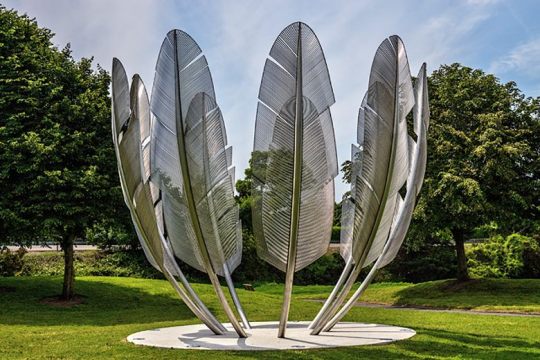
#native american#indigenous#Choctaw#irish#ireland#great famine#the great famine#colonialism#colonization#Navajo#hopi
3K notes
·
View notes
Text


07|01|2025
I took way more time than expected to write down my list of key words, but they are very useful, and it's a way of reviewing as well so good enough. Today I managed to finish that task, and I must say I am happy with how I worked today. This week I'd also like to do another outloud review for my history of Sabaudian states materials, and then hopefully start working for my other exam. If I end up feeling like I cannot take the other exam on the date I had decided I'd have the option to take that exam at the beginning of February. That isn't ideal and I'd rather avoid that, but I have the option just in case. I wish I was more confident for the exam season, but overall I don't feel as good as I usually do.
Today's productivity:
read first thing in the morning
finished the list of key words
went for a walk with a friend during my lunch break
texted my tattooist to know whether she has the drawings for my tattoos but sadly I'll have to wait a few more days to see them
Irish on duolingo
#studyblr#studyinspo#uniblr#university#journaling#journal#studying#productivity#knife gang#mine#the---hermit
159 notes
·
View notes
Note
AITA for asking my partner not to talk about how happy he is that Ghandi was assassinated?
I hope this doesn't get too long! 🍀
I (26, F) am Irish Australian, my partner (33, M) is Sikh. He's shared many beautiful things about his culture with me, and has a thoughtful way of describing the relationship between Sikh history and current culture.
However I get a bit uncomfortable when he talks about how Gandhi was assassinated by a Sikh person. I know enough about Gandhi to be aware that while he might've had some good impact, he had plenty of underreported bad too. But I don't pretend to understand the extent of it all.
I also understand what a complex thing that sort of cultural history is, my family joke about being proud of the assassination of Mountbatten by the IRA. But we keep that talk behind closed doors, it requires more understanding of the Troubles than the average person has. Also, joking about death is a bit nasty unless you know everyone is comfortable
My issue with my partner is that when he talks about Gandhi's death he's not speaking with a historical context. He gets very serious and sits up all tall and says proudly that Sikhs are a warrior race and they fucking delivered. He has done this in company and in private and it's always very intense and a mood killer, he is not joking at all. I think that level of confident pride in the death of another is kinda messed up
So, I asked him to not talk about it in such a full on way. He refused to apologise because he is proud of it and he said that he's glad they did it (I appreciate his honestly there). I asked if he would be pleased to see a similar event play out today, a Sikh assassinating a major political influencer. He said he would be happy and asked the same of me regarding Mountbatten (this had come up in the conversation, obviously I'm paraphrasing, the whole thing was pretty upsetting tbh) and I said no cos it's not an active war. Also, that I don't actually stand behind that I'm just comfortable with the complexity of it to joke with my family and still know people understand where I stand. Like, the IRA killed his kids too. The whole time was fucked.
He said he's not joking. He, gently, said I was being a bit of a hypocrite. He didn't promise to not talk about Gandhi, but hasn't brought it up since. I feel like he's pretty unhappy about it
I dunno, I asked him without really thinking about it all and I think he makes a good point about the Mountbatten parallel. I'm not sure if the difference in my feelings is my own ethics or just me being a bit racist. And it's not his job to make me not be racist if I've got some stuff to work through. But still, I think if it was any culture I'd be uncomfortable with that much aggressive pride in murder. Like, I've grown up in a country without a death penalty, death is not something people can dole out imo, and his approval of it is so absolute and genuine, there's no pulling the punch. Unlike my way of talking about Mountbatten.
So, AITA for asking my partner to stop talking about his pride in a Sikh person assassinating Gandhi?
What are these acronyms?
630 notes
·
View notes